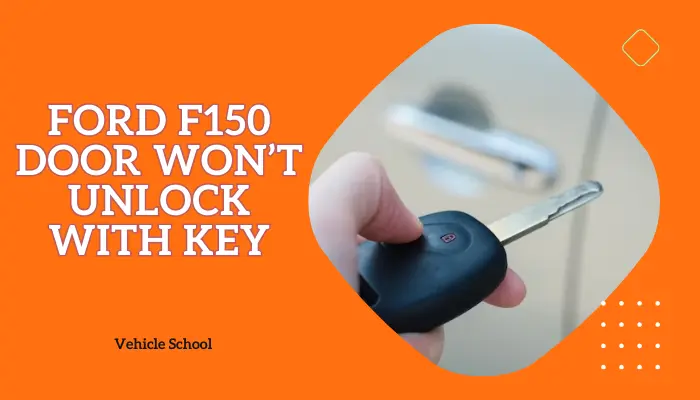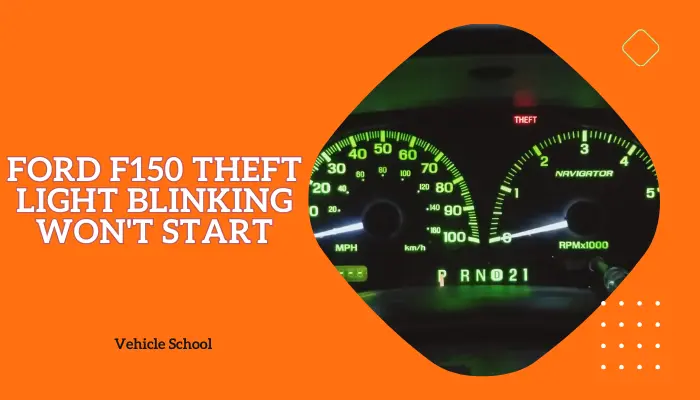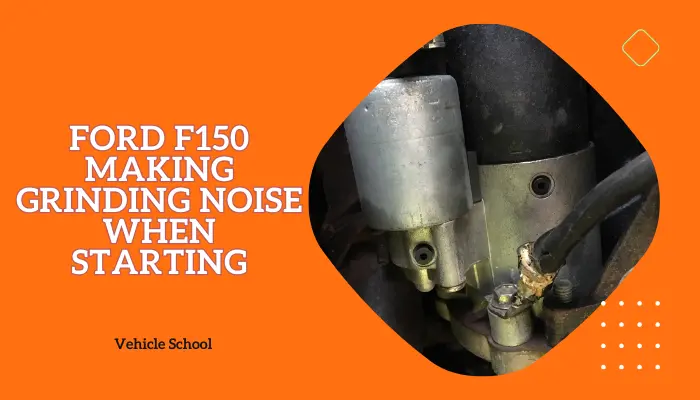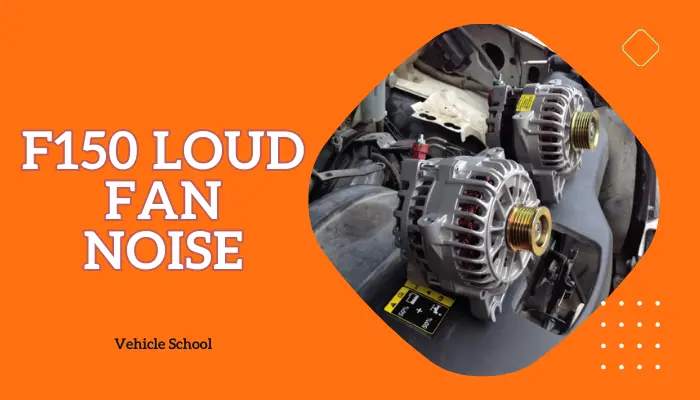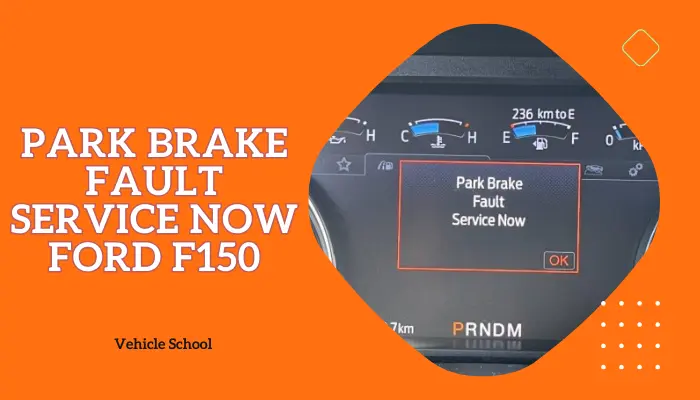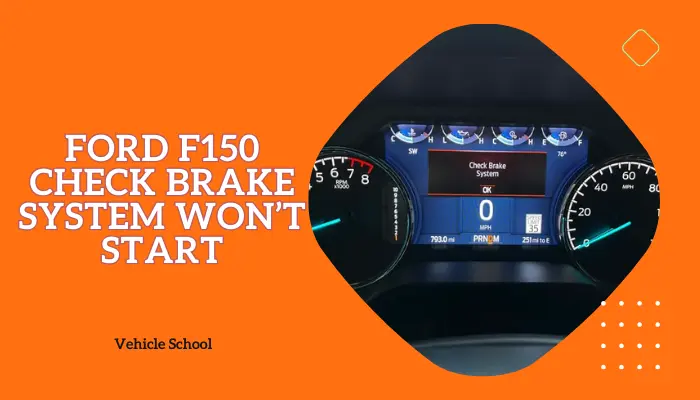Setting out on a ride with your F150 should feel relaxing. But the jarring screech of brakes frequently shatters this tranquility, indicating an issue lurking beneath the surface.
Whether it’s due to worn brake pads, rust buildup in brake components, or our driving habits, that squeal insists on attention. In this guide, I’ll tell you the causes and fixes to silence the brake squeal in your F150.
Why Are Your Ford F150 Brakes Squealing?
The F-150 brakes make squealing noises due to rusty brake rotors, worn brake pads, improper seating of brake calipers, corroded brake components, or problems with the parking brake. These can be fixed by, cleaning the accumulated rust, replacing worn pads, realigning calipers, replacing brake system components, and adjusting the parking brake system.
In this section, I’ll go through all the reasons in detail.
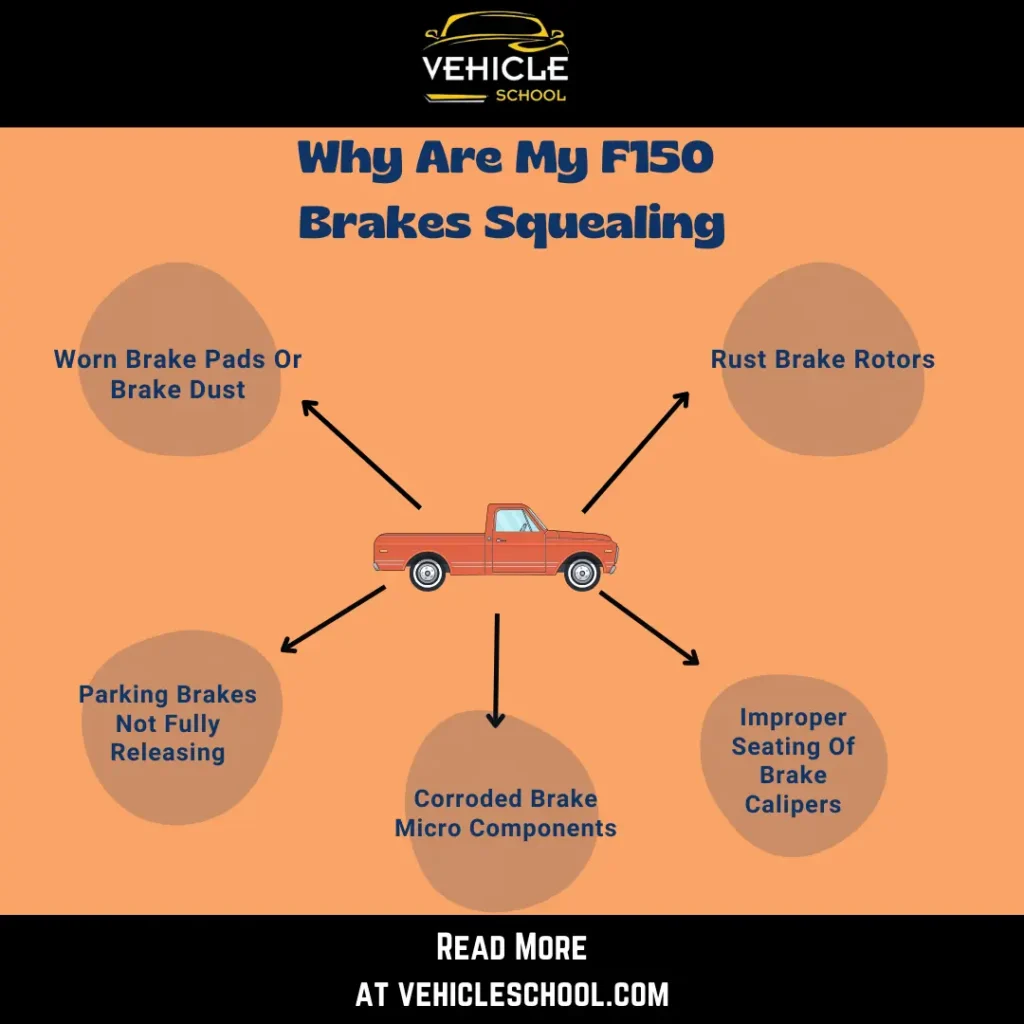
1. There’s Rust in Brake Rotors
Damp or low-temperature conditions cause moisture to accumulate on brake rotors, ultimately leading to surface rust formation.
This rust creates uneven surfaces, causing friction and noise when brakes are applied after a cold start.
2. Worn Brake Pads Or Brake Dust
Brake pads naturally wear over time from braking friction, reducing the material between calipers and rotors.
This wear causes vibrations and noise upon braking. Brake dust, a byproduct of pad wear also adds to the noise and creates a gritty rotor surface.
You’ll also see the check brake system ford f150 warning if the brake pads and calipers are damaged.
3. Improperly Seated Brake Calipers
During brake pad or caliper replacement, improper installation can lead to misalignment issues such as uneven torquing of caliper bolts or misaligned pads.
This results in uneven contact with the rotor, causing vibrations and as well as squealing noises during braking and accelerating.
4. Parking Brakes Not Fully Releasing
Parking brake issues often arise from caliper or cable problems.
When engaged, the brake applies pressure, and if the release mechanism fails, residual pressure keeps the brake pads touching the rotors, often leading to F150 brakes squealing in reverse.
This ongoing contact can speed up wear on the brake components, so it’s crucial to address the problem promptly to prevent damage to the braking system.
5. Corroded Brake Micro Components
According to Ford, some 2021–2022 F-150s with light-duty electric park brake calipers can develop a squealing noise from the rear brakes after being stationary for 8 hours or more.
This is likely due to shifts or corrosion in the brake pads, discs, or other brake parts like calipers during prolonged inactivity, causing friction and noise when brakes are first applied when speeding.
How To Stop F150 Brakes From Making High Pitched Noises?
Let’s talk about how you can turn all that noise off.
1. Clean The Rusty Components
- Lift your F-150 and secure it with jack stands.
- Use the lug wrench to remove the wheels.
- Check for rust on the brake rotors, focusing on concentrated areas.
- Spray brake cleaner and scrub rusty spots with a wire brush.
- If rust persists, use a rust converter.
- Wipe clean with a cloth or shop towels.
- Reattach the wheels, lower the car and tighten lug nuts.
- Drive slowly and gently brake to dry and settle pads, removing remaining rust.
- Apply brake lubricant to pads, calipers, and moving parts. Try using CRC Brakleen.
- Do a test drive and see if there’s any more squeaking.
2. Clean And Replace Worn Brake Pads And Caliper
- Gather these tools: lug wrench, jack, jack stands, and new brake pads.
- Lift the truck, secure it, and remove the wheels with a lug wrench.
- Clean the pads with brake cleaner or a strong water stream if you see brake dust.
- Check their thickness; replace them if thin or uneven.
- Loosen caliper bolts, swap in new pads, and tighten securely.
- Replace brake pad wear sensors.
- Check the caliper for damage, grease slide pins if needed.
- Put the wheels back on, hand-tighten the lug nuts.
- Lower the truck and give the final lug nut tightening in a crisscross pattern.
- Take a short drive, listen for odd noises, and ensure the new pads work well.
3. Fix Misaligned Brake Calipers and Pads
- Lift the truck and pop the wheels off.
- Check caliper bolts, tighten if needed.
- Adjust brake pads for a snug fit on the rotor.
- Slide the caliper in and tighten the bolts evenly.
- Ensure the wheel hub sits well on the rotor.
- Put everything back, double-check to make sure things are secure.
- Tweak pad and caliper alignment if needed.
4. Fix Corroded Brake Micro Components
- Check the rear brakes – pads, discs, calipers, pins, clips, and springs.
- For minor rust, apply a rust treatment spray as instructed.
- Go for a spin, gently applying brakes at different speeds. Listen for any improvement.
- If the noise persists, change caliper pin bolts, brake pad clips, and retraction springs on both sides using WSM Section 206-04 Rear Disc Brake as a guide.
5. Check And Readjust Parking Brakes
- Park on a flat surface and secure the vehicle with wheel chocks.
- Check the parking brake system, including cables and calipers.
- Clean parking brake parts with a cleaner and brush.
- Inspect and adjust the parking brake cable tension.
- Ensure the levers are loose enough and not too close to the drum.
- Test the parking brake for smooth operation and full release by engaging and disengaging.
- If no further adjustment is needed, reassemble and take the truck for a test drive.
Closing Thoughts
After you’re done trying these fixes, your F150’s brakes should function seamlessly, making your driving experience more enjoyable without the squealing sound.
And remember to re-lubricate the brakes after you’re done replacing and fixing all the parts.

